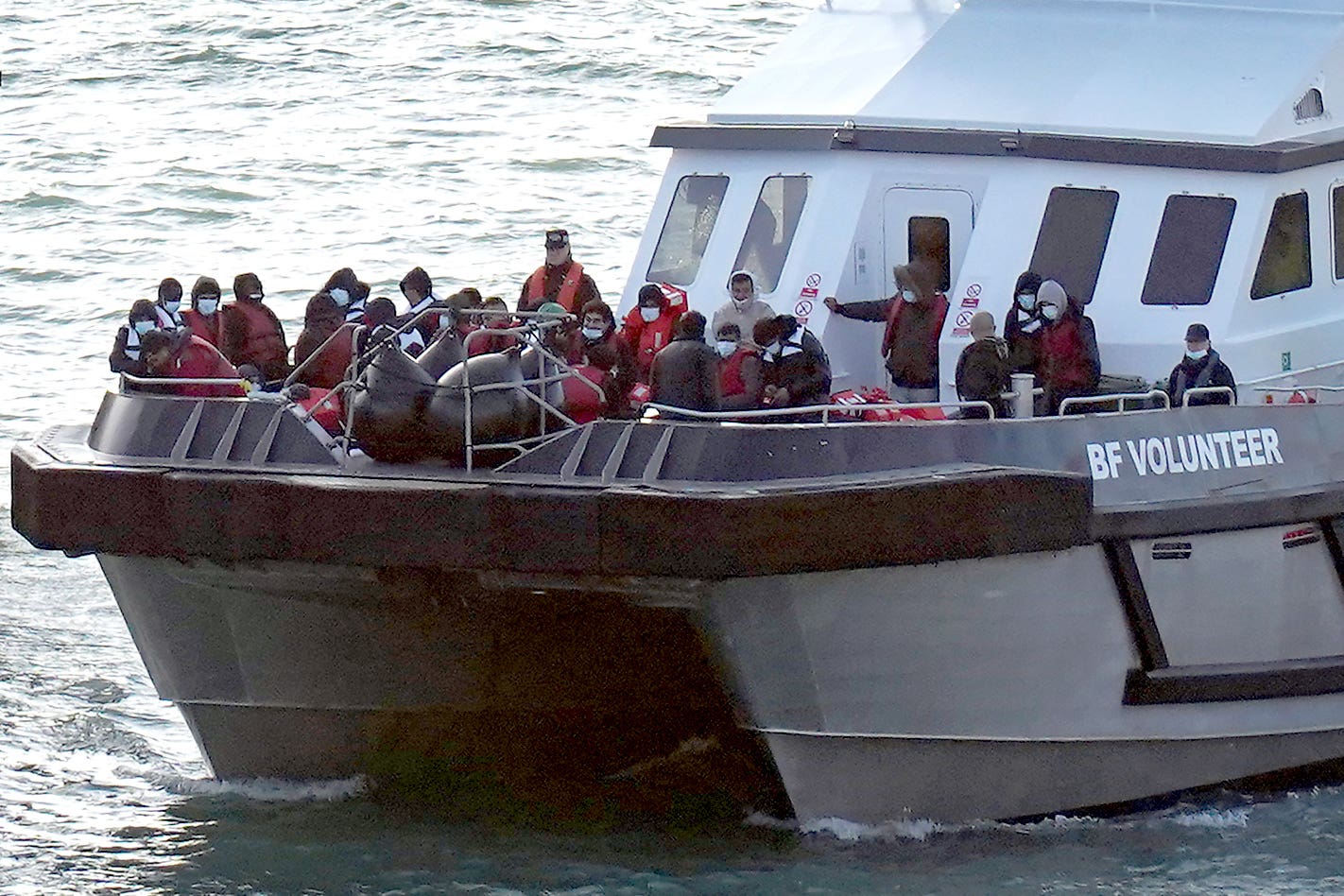Rishi Sunak ditches pledge to place cap on refugee numbers
Prime minister sets face firmly against introduction of ID cards

Rishi Sunak has ditched a key pledge from his Conservative leadership campaign to impose a cap on the number of refugees taken in by the UK each year.
The prime minister said that it would not be possible to consider a cap until the flow of migrants crossing the Channel from France by dinghy has been halted – something he admits will not happen “overnight”.
Meanwhile, Mr Sunak set his face firmly against compulsory ID cards, after a Labour shadow minister floated them as a method of reducing irregular immigration.
The PM confirmed that he is committed to the 2019 Conservative manifesto pledge – briefly dropped by Liz Truss – to reduce net overall immigration to the UK. But he admitted that this goal is on the back burner until the small boats issue is dealt with.
“I do want to get migration down over time,” he said. “But I think the most pressing priority we have and the British people have is getting a grip of illegal migration and small boats. And that’s what I’m spending most of my time on.”
Mr Sunak was speaking as the UK signed a new £63m deal with Paris which will see British Border Force officers deployed for the first time in control rooms on the French side of the Channel, while France steps up its patrols of beaches by 40 per cent.
The agreement is the latest stage in a cooperation agreement which has seen Britain pay France £175m since 2018 but has not prevented the number of cross-Channel migrants from increasing to a record 40,000 this year.
During his unsuccessful leadership battle with Liz Truss earlier this year, Mr Sunak set out a 10-point plan for immigration, with a controversial refugee cap at its heart.
The would-be PM said in July that he would give parliament powers to set a maximum limit each year for the number of asylum seekers permitted to stay in the country, with priority given to people fleeing imminent peril over those judged to have passed through safe countries on their way to the UK.
Speaking during his visit to Indonesia for the G20 summit, Mr Sunak made clear that the cap proposal was now very much in the long grass.
“Having a conversation like that can only happen after we’ve taken all the necessary steps to have proper control of our borders, so that there aren’t large numbers of people coming here illegally,” he said.
“And that is the priority, that’s the focus.
“I think the first thing to do is to make sure that we can stop numbers of people coming here illegally.
“The deal with the French is the first bit of me delivering on what I said. This is a priority for me, and I want to have action on it.”
A refugee cap would put Mr Sunak on a collision course with international law, which states that it is legal for individuals to enter a country to seek asylum.
By placing a limit on the number who could remain after being granted refugee status, he would put the UK in the position of deporting people who have proved they have a well-founded fear of persecution if they are removed.
Zehrah Hasan, advocacy director at charity the Joint Council for the Welfare of Immigrants, said any cap on refugee numbers would have been “cruel and unworkable” and urged the government to provide safe routes to the UK.
“This government could easily introduce a fair, functioning asylum system that benefits us all – including safe passage to the UK, efficient decision-making and housing for people in our communities. Instead, it is committed to fuelling division and hate, to distract from the chaos it has manufactured for us all,” she said.
Labour’s shadow immigration minister Stephen Kinnock last week said that Labour was considering the introduction of ID cards as a means of reassuring the public that the government has control over the borders – though shadow home secretary Yvette Cooper later poured cold water on the idea.
Tony Blair’s Labour government passed legislation to pave the way for compulsory ID cards in 2006, but the plan was scrapped by David Cameron without ever having been implemented.
And Mr Sunak made clear today that he does not regard cards as the answer.
“I don’t think that is the right way to solve this problem.” he said.
E-visas issued to people coming to the UK to visit or work already provide a form of digital identity which can be checked by the authorities, while around 98 per cent of those living in the country already carry photographic ID in some form, he said.
And he said that the government had strengthened the penalties for landlords and employers in cases where migrants settle or work in the UK illegally.
“Those are the things that are already in place which mean I don’t think that ID cards are necessary,” said Mr Sunak.
“I also think we have a long debate in this country on the civil liberties aspect of ID cards which is why I think the Labour Party probably themselves, in the course of 24 hours, changed their mind on it.
“We have these other ways to check the identity of people who we are keen to check, without needing to resort to ID cards and we’ve tightened up penalties on the enforcement side. Now I need to focus on all the other things we need to do.”
Join our commenting forum
Join thought-provoking conversations, follow other Independent readers and see their replies
Comments



Bookmark popover
Removed from bookmarks